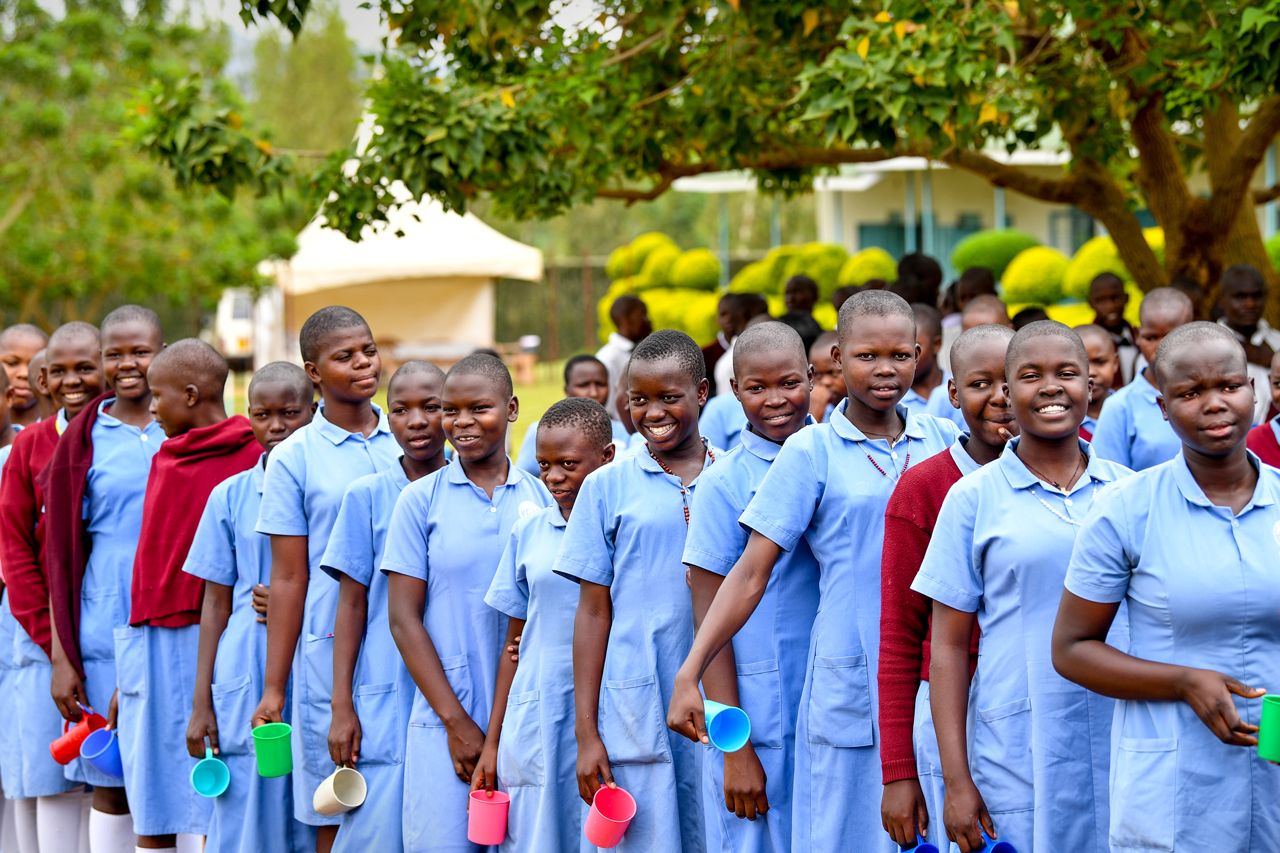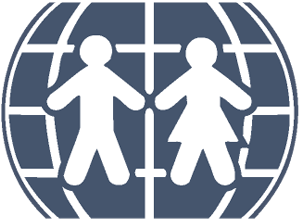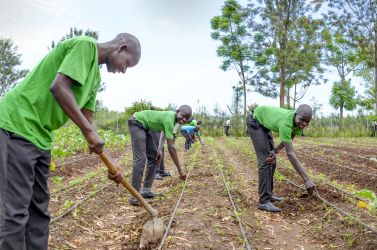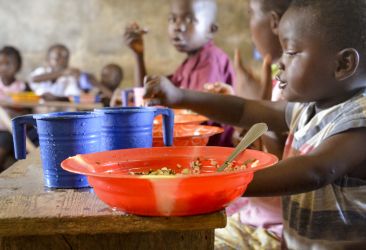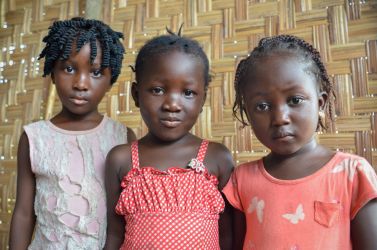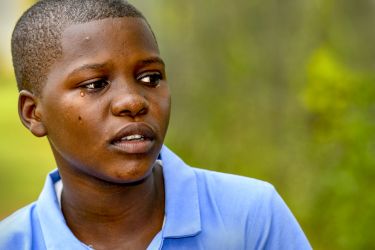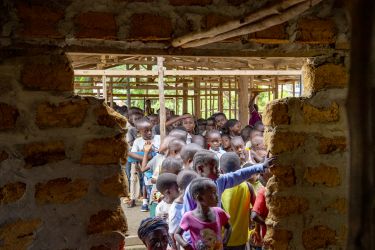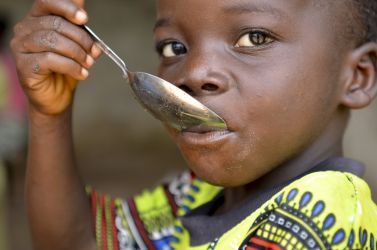World Children’s Fund is celebrating its 20th year as a charitable organization in the United Kingdom. As we reflect on twenty years of humanitarian service around the globe, one thing is very clear. We couldn’t have done it without you.
“It is personally humbling to realize just how much kindness and generosity is out there, not just financially, but of spirit too,” said Lynne Hodgins, who serves as World Children’s Fund Office Manager in the UK.
Lynne joined the WCF team more than ten years ago. She engages daily with WCF supporters in the UK and is grateful for the opportunity to liaise with so many committed people.
She says WCF supporters in the UK indicate they give for a variety of reasons. Many donors have personally suffered from difficult or impoverished backgrounds. Other supporters have family from one of the many countries WCF serves. She says others contribute to WCF because they feel very blessed to have had good fortune during their lives.
“It is a privilege to be told these stories, but what unifies all of our supporters is their passion to help those in need,” she said. “We never lose sight that at the very centre of WCF are those who are kind enough to financially support our projects and join hands with the children who need that support so much.”
We gathered our WCF team to talk about some of the achievements over the past two decades. It is a bit like choosing which child you cherish the most. Below are three of our top programme picks, why we love them and why we are so proud of the humanitarian work we have accomplished together with our donors in the UK.
Juba College of Nursing And Midwifry
Juba, South Sudan
Why We Love It:
World Children’s Fund helped to provide a sustainable solution to South Sudan’s maternal and infant mortality rate by providing funding for the infrastructure for the Juba College of Nursing and Midwifry. (JCONAM)
WCF was one of the first non-governmental stakeholders to dive in with the Ministry of Health in South Sudan to support the Juba College of Nursing and Midwifery. It became the first accredited college of nursing and midwifery in the republic of South Sudan.
In 2011, after a civil war that spanned more than two decades, South Sudan seceded from the country of Sudan. Every sector of the region was decimated by war. Women, in particular, were suffering and in dire need of trained midwives and nurses. At the time, the Ministry of Health in South Sudan estimated that the country of approximately ten million people had 40 registered nurses with diplomas and only two registered midwives. The ministry also estimated that than 200,000 women a year were dying giving birth and from post-birth complications.
“South Sudan still remains one of the most dangerous places to become a mother because of its high maternal mortality rate, but we are making progress” said Doug Kendrick, WCF International Programme Director. “Our partnership has helped save the lives of mothers and their babies in South Sudan. Every graduate, whether a nurse or midwife, has the potential to save the life of a future mother and child,” he said.
The first class of nurses and midwives graduated in 2013.
We applaud every graduate and thank every donor who has helped make this life-saving programme possible!
World Children’s Fund Mama Kevina Secondary School
Tororo, Uganda
Why We Love It:
The WCF Mama Kevina secondary school provides an excellent education and meets the daily needs of more than 400 students, including orphans, vulnerable and neglected children. They study and live at our boarding school in Tororo. The school recently received national recognition in Uganda, being named one of the top two schools in the district.
“Because I am passionate about education, I am most proud of the way that WCF supports education in its projects,” said Lynne. “Education gives children the skills to be self-sufficient, to view and assess the world around them, to be part of the wider community and to be the builders of their communities and their country’s future,” said Lynne, reflecting on the WCF Mama Kevina School.
Tororo, Uganda isn’t the easiest place in the world to get to. But, if you have the opportunity to visit, you will understand why this programme is special. The school, located in eastern Uganda, is about a four hour drive from the capital city of Kampala.
World Children’s Fund supports the on-going operations of the school, which includes providing for the education, boarding, medical care for the students and staff salaries. World Children’s Fund has also invested in significant infrastructure and development through the years, including girls and boys dormitories, blocks of classrooms and the construction of the main gathering hall.
On arrival at the school, you notice how tidy and clean the school grounds are. Students work diligently to maintain and beautify their surroundings. You will not find any litter or rubbish strewn around. Instead, you see signs posted in the lawn encouraging students to do things like “Be Punctual,” Be Polite,” and “Love Books.”
Students are engaged in each classroom, conducting experiments in chemistry labs, tackling difficult math equations, studying physics and English and preparing for their national exams. In the afternoon, girls play netball, boys challenge each other in football and students work together in the school’s garden. The students also participate in dancing, drama and debate.
The WCF Mama Kevina School embraces a holistic educational approach. The curriculum reaches beyond academics. Students are encouraged to understand themselves, develop healthy relationships and adopt positive social and emotional coping skills in an effort to prepare them to navigate the challenges of life as they move into adulthood.
Three times each day, students assemble and stand in line in anticipation of their daily meals. They all arrive with their own plate and cup in hand, which they are responsible for washing after each meal. Often, they eat Chapati, a flour based product that looks like a tortilla. It is served with rice. They laugh and talk among themselves.
It is only when they tell you their stories, with tears dripping from their eyes that you truly understand these are not your typical secondary school students.
Asinduru, a fourth year student, says her father married “many women.” She thinks there are about twenty children who are her siblings. Her father died when she was in primary school. As a young girl, she spent her time selling greens and vegetables in the market. She says she desperately wanted to attend school, but her mother had no education and was powerless to advocate for her. The men in her family, especially her uncles, wanted to either hire her out for labor or “marry her off.”
“I never lost hope. I knew I wanted to make a future,” says Asinduru.
An aunt helped connect her with the WCF-Mama Kevina school. Asinduru syas she continued to fight to leave her village and attend school in Tororo. Finally, she says she convinced the family members who controlled her, to let her go.
Like many of the other students, she arrived with no financial support and lacking basic necessities, like bedding, scholastic materials, shoes and personal items like soap and toothpaste.
“Life has been very hard, but I keep having hope.”
Asinduru is one of many students who have no place to return to during school breaks. She happily stays on campus during the one month school holiday each year and helps with chores around the campus. The WCF Mama Kevina School is her home.
As she begins her final year at the WCF Mama Kevina school, she says she ultimately wants to do something with her life to serve others. “ I thank all of you people for all the life-changing help you have given me,” she said.
We thank you, too. We are grateful for every donor who is partnering with us to provide these formerly forgotten children with an excellent education and a safe and loving environment. This programme is saving adolescents like Asinduru from child labour and early marriage. She and the other students at the WCF Mama Kevina Secondary school are now walking a pathway of hope. We are proud to be preparing the future leaders of Uganda.
WCF Feeding Programme
Buchanan, Liberia
Why we love it:
World Children’s fund supports the feeding of more than one thousand children each week day in Buchanan, Liberia. These impoverished children would have empty bellies were it not for the generosity of WCF donors. What started out with 75 children in 2008 has expanded to three different feeding sites in Buchanan, serving about 1200 children per day.
“For us, here in Liberia, where ever there is food, it draws our attention,” said Sampson, the coordinator of one of the three feeding sites. “Everyone here needs help finding their daily bread.”
During WCF’s most recent programme visit to Liberia in September of 2018, a single cup of rice was selling at the local market for about 50 Liberian dollars. Food inflation is currently at around 24%, making even basic food necessities out of reach for many Liberians.
Liberia is broken country. Its people endured more than 14 years of relentless civil war that ended in 2003. The country, one of the poorest in all of Africa, was already in shambles when the Ebola crisis began ravaging west Africa in 2014. Liberia was the hardest hit country, with an estimated 4,800 deaths attributed directly to the virus. The already fragile economy came to a screeching halt as people stopped going out into public. Liberians also began dying from common ailments because no medical care was available to anyone during the height of the epidemic. Health care providers were one of the first groups to be infected. Today, the effects from poverty, war and the epidemic travel far and wide and impact every aspect of daily life in Liberia.
“It is hard to imagine how starving people can starve even more,” says Allieu Barbue, who monitors and oversees the feeding site located in the Fairgrounds Community. “It is just by the grace of God that we have all survived.”
Miraculously, none of the children enrolled in the WCF feeding programme in Buchanan died during the Ebola epidemic. However, two children lost both of their parents to Ebola. According to Barbue, many of the children in the feeding programme are already fatherless and motherless and live with grandmothers, older siblings or guardians.
Ben Wesseh, age 12, has been enrolled in the WCF supported feeding programme in the Fairgrounds Community for more than five years. Both of his parents are deceased. He has been living with his grandmother since he was nine months old.
When asked how many other children, siblings and cousins also count on his grandmother for survival, he pauses, looks up as if counting and finally answers, “There are plenty.”
He says on most weekends, no food is available. He looks forward to weekdays, like Monday, when he knows the feeding programme is open and ready to welcome him. He says he enjoys the potato greens, which are mixed into a soup. He also loves the beans, palm butter and bitter ball that are lovingly prepared by the nine cooks on staff.
Ben Wesseh has never been on airplane, but he can see them occasionally in the sky. He says if he could fly away, he would go to America. He has heard it is a country with “a lot” of food.
Like many kids in the programme, he also mentions enjoying the rice meals that are dispatched by WCF via ocean container. They arrive into Monrovia’s port each year and are trucked into Buchanan. Each container is filled with up to 250,000 rice meals. During the Ebola crisis, WCF donors dispatched two extra emergency shipments of meals that supplemented feeding for the WCF children and were also disbursed throughout the community. Even the current mayor of Buchanan, who was a school teacher during the Ebola crisis, credits the WCF rice meals in aiding his survival during the epidemic when he was out of work due to government mandated school closures.
At WCF, we love being able meet the needs of vulnerable and suffering children, like Ben Wesseh, who arrive hopeful and hungry each day to our feeding programme in Buchanan.
“Our donors may think that a few pounds will not make a big difference and that the number of children in need out there is overwhelming, said Lynne. “But every pound counts and, at WCF, we can see just how far and wide small ripples travel and how many people we help.”
To all our committed donors, thank you for celebrating twenty years with us. No one can save the whole world. But, together, we can rescue and restore one life at a time.
